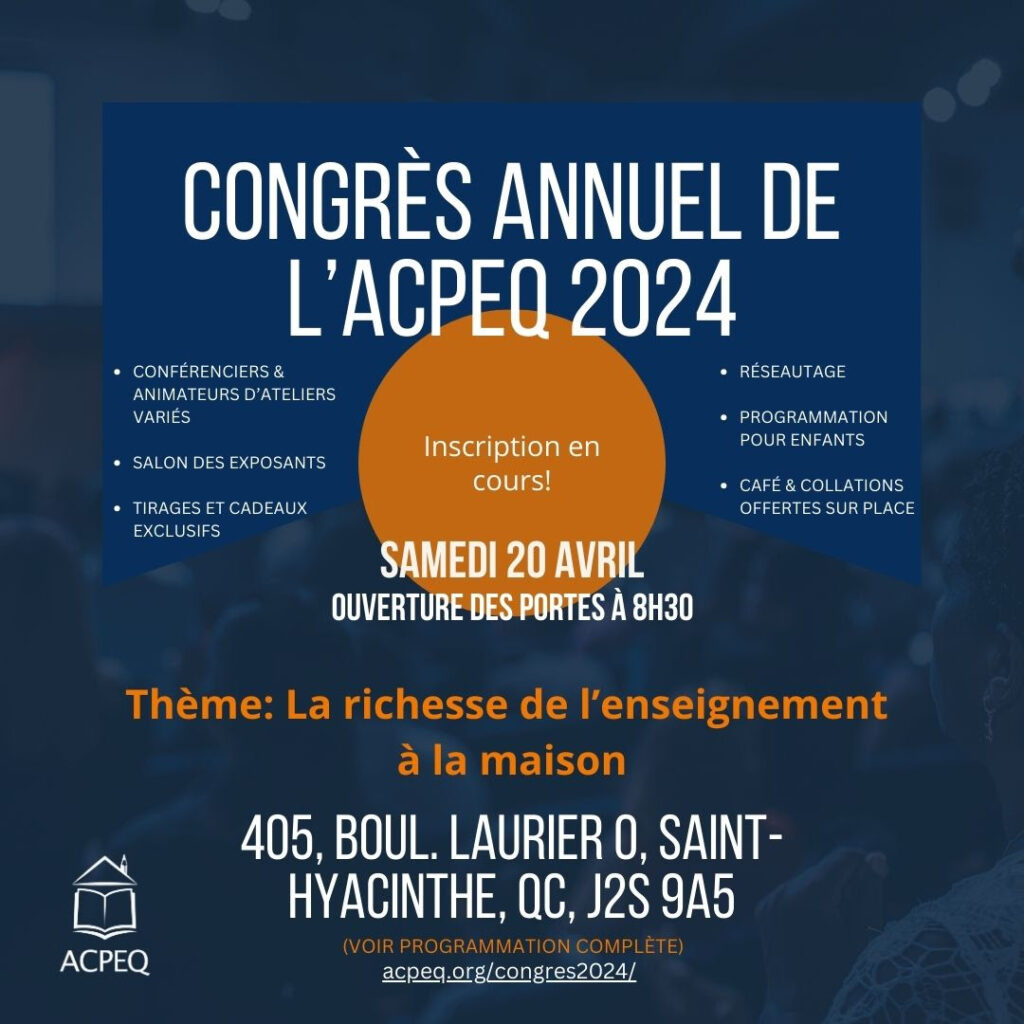Reproduced with permission from HSLDA, Winter 2006, Vol. XV, No. 4,
Formerly known as: Québec Reporting Requirements
By Paul Faris
Private education in Québec, including home education, is in a state of turmoil this fall. Unregistered, “illegal” schools have been receiving much media coverage across the province, as individual reporters and media chains have sought out schools that teach with a religious perspective.
The ministry of education has also started to require all unregistered schools to officially file for recognition and to use the provincial curriculum in all subjects. Any other material must be taught in addition to the provincial curriculum, not in place of it. Because of these anti-religious restrictions, many families are turning to home education as the only option that allows them to provide their children with religious instruction.
These changes come at a time when the ministry of education is considering a provincial policy on homeschooling. HSLDA, in cooperation with ACPEQ and others, has been working to ensure that any new policy increases the educational freedom of parents. This process is ongoing.
The current law in Québec is vague. Section 15(4) of the Education Act(Act) exempts from school attendance “a student who receives homeschooling and benefits from an education experience which, according to an evaluation made by or for the school board, are equivalent to what is provided at school.”
Section 15(4) has been interpreted differently by various school boards, and could be construed to mean that students must use the same curriculum as the public schools and write the same tests. This interpretation would be contrary to the freedom of conscience and religion in the Charter of Rights and Freedoms (Charter), since it would not allow parents to provide their children with an education in accordance with their religious beliefs. HSLDA interprets this law on a principled basis in light of the freedoms enunciated in the Charter and recognized by the Supreme Court. We see this section as meaning that parents must obtain equivalent outcomes, taking into account the personal characteristics of the child, as demonstrated by an evaluation based on the material chosen by the parent. Although both of the above interpretations are consistent with the Act only the second one is consistent with the Charter.
Unfortunately, just as private schools are being challenged on the right to use a Christian curriculum, home educators are being challenged on their right to use an alternate curriculum or evaluation methods that reflect this curriculum (as well as on several other equally concerning issues). Furthermore, many school boards in Québec take the unreasonable and legally untenable step of reporting a child to Youth Protection Services (YPS) if the family does not comply with all the improper requirements. Fortunately, the courts in Québec have made it clear that YPS has no mandate to intervene in educational disputes unless the child is being educationally neglected. Home educators have no difficulty meeting this standard.
Curriculum approval is one issue that has come up in our negotiations with Québec’s ministry of education. Many school boards and some other provinces seek to evaluate curriculum; only once a program of study has been assessed and approved would parents be permitted to use it. Home educators who utilize one wholistic curriculum product might find this approach attractive, since the “authorities” are more likely to validate their homeschool rights once the product has been given. HSLDA finds this approach problematic and very destructive of home-educating freedoms, for three main reasons.
First, school boards are highly unlikely to approve much curriculum. Millions of dollars and hundreds, often thousands, of hours are invested in designing provincial courses. The result is a very specific, comprehensive program that is endorsed by the foremost educational experts in the province. Implicit in the choice is the position that any other curriculum is inferior or else it would have been chosen. In many cases, such as the evolution/creation issue, parents often choose curriculum that the provincial experts believe is wrong. It is thus likely that some of the material chosen by parents will never actually be approved.)
The second problem with seeking governmental approval is that those who set themselves up to approve the curriculum do not have sufficient resources to actually review all of the choices that parents make. There are literally dozens of valid programs on the market for home educators. If parents cannot use a curriculum until it is approved, they might have to wait years!
Third, most parents do not use just one curriculum program. Many parents mix and match between subjects to tailor courses to each child, and so any review by the “curriculum police” would still be insufficient to cover every home education program. One of the greatest strengths and, I believe, reasons for the success of homeschooling is that parents can customize the course of study and learning environment to the individualities of each child. Most parents have at least one example of a child who was not flourishing under one program, but who suddenly experienced huge success and comprehension when the material was changed. Allowing the government to approve curriculum removes this freedom, which is so essential to home education success.
Please keep Québec in your prayers as we deal with these very difficult issues. Many families are experiencing harassment and threats as a result of their decision to home educate in accordance with their personal convictions. We thank those of you in more peaceful provinces for standing shoulder to shoulder with your fellow home educators in Québec through your support of HSLDA.

